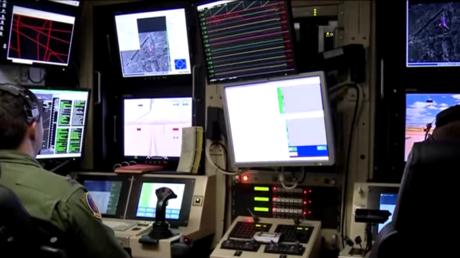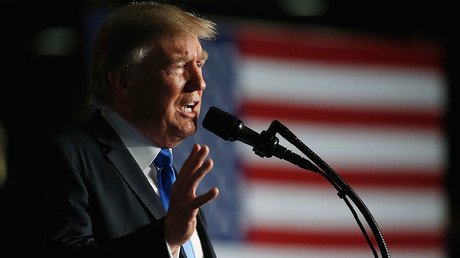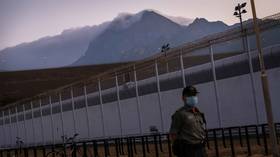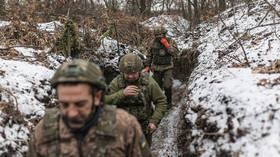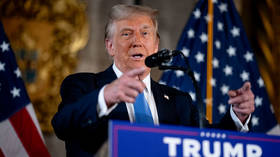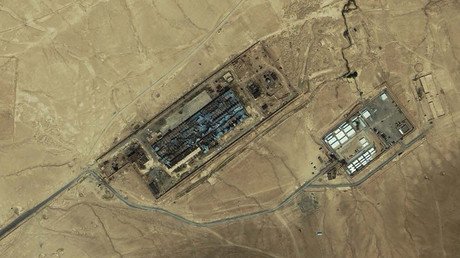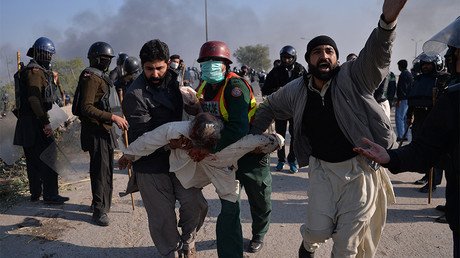Pakistani Air Force ordered to shoot down US drones
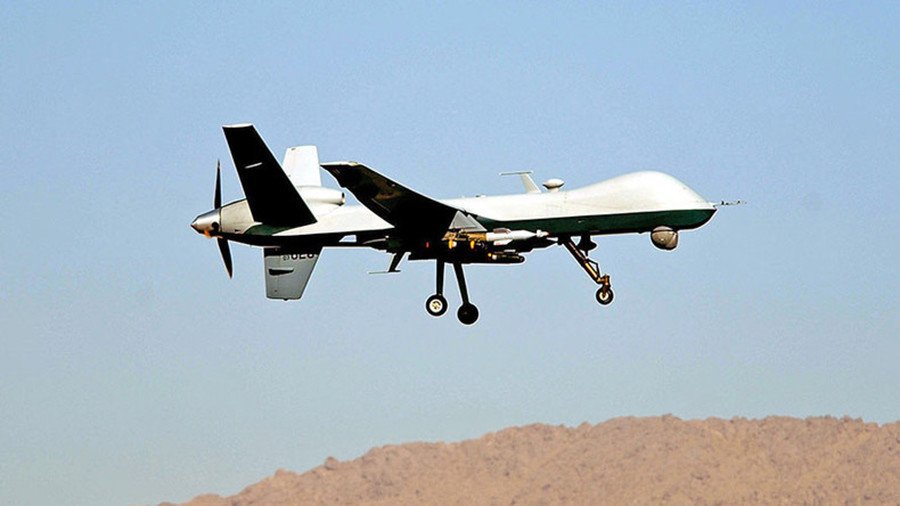
Pakistan’s Air Force (PAF) commander has reportedly ordered to take down drones violating the country’s sovereignty, including that of the US.
Air Chief Marshal Sohail Aman also recalled a historic breach of trust incident over a batch of US-made F-16's which Pakistan paid for, but never received. The jabs against America, a key ally, came Thursday in a speech Aman delivered at a ceremony of aviation students gathered in Islamabad. The top military official praised Pakistan’s air prowess, saying their forces are prepared to defend sovereignty of the country.
“We committed a mistake in Osama bin Laden's case but now the country’s sovereignty will be protected at all costs,” he told an audience at the AirTech 17 expo at the Air University. Aman was referring to the CIA-led US commando raid in May 2011, which involved a cross-border flight of Black Hawk helicopters from Jalalabad, Afghanistan to Abbottabad, Pakistan. The Pakistanis were not informed about the planned assassination beforehand, which sparked outrage in the country.
“We will not allow anyone to violate our airspace,” Aman said as cited by The Times of India, adding, that he has ordered the PAF “to shoot down drones, including those of the US, if they enter our airspace, violating the country's sovereignty and territorial integrity.”
The US flies drone missions over Pakistan and conducts airstrikes on suspected militants in the turbulent tribal area on the border with Afghanistan. The practice has prompted outrage amongst Pakistanis because of the high death toll it effects on civilians.
"In the past, the drones have been attacking targets in Pakistan. Earlier it was perhaps with the detested approval of the government of Pakistan. But in the last couple of years, the government of Pakistan has not provided any such approval," Talat Masood, a retired three-star general in the Pakistani army told RT.
Masood explained that Pakistan is forced to protect its sovereignty in order to avert an Arab Spring scenario witnessed throughout the years across the wider Middle East.
"In fact, at the moment there are some scribes in the New York press or in the Washington press who are predicting that if Pakistan does not draw the line of the United States of America, a Syria-like situation maybe created over here. This has raised the hackles in Pakistan, because Pakistan cannot allow its territory to be used by others to engineer in the name of democracy, any farcical moves which can destabilize the country," he said.
Aman praised Pakistan’s aviation engineers and scientists, saying their expertise and brilliance means the country need not depend on foreign suppliers for military aircraft. He recalled the issue of the cancelled delivery of US-made F-16 fighter jets, for which Pakistan already paid a multi-million dollar down payment.
The episode illustrates the bumpy history of relations between Islamabad and Washington. In the ‘80s, the US needed Pakistani assistance to undermine Soviet troops in Afghanistan, pouring billions of dollars in cash and military aid into an “anti-Soviet jihad.”
4 killed as suspected US drone hits Haqqani militants in Pakistan – report https://t.co/3BZ4Mp9wpipic.twitter.com/XWEekHCvrg
— RT (@RT_com) November 30, 2017
This, however, conflicted with US non-proliferation goals, since Pakistan was actively working on producing a nuclear weapon to counter arch-rival India’s newly acquired nuclear capability. US law prohibits providing any aid to a potential nuclear proliferator, so in order to keep Pakistan on its good side, a stop-gap solution was introduced – the 1985 Pressler Amendment.
Named after US Senator Larry Pressler, the legislation enabled a US president to certify to Congress that Pakistan was not developing nuclear weapons, and thus qualified for aid. The administrations of Ronald Reagan and George H.W. Bush did so for five years, despite intelligence to the contrary.
#US top general says #Pakistan's intelligence is 'connected to terrorists' https://t.co/mpSBGJEXEo
— RT (@RT_com) October 4, 2017
But in 1990, USSR troops were no longer in Afghanistan, and Pakistan’s value diminished in Washington. The non-proliferation sanctions then kicked into force, putting a stop to the ongoing deal to deliver 28 F-16’s to the PAF. Pakistan was not only denied the planes, for which it paid Lockheed Martin over $650 million, but also audaciously slapped with a $50,000 per month storage fee. Ironically, the annual payments to the US defense contractor for the withheld jets continued until 1993, as Pentagon officials were telling the Pakistanis that the warplanes would eventually be delivered.
The F-16’s eventually went to New Zealand while Pakistan and the US settled the dispute under Bill Clinton’s presidency, albeit via a partial compensation. In Pakistan, the story is perceived by many as a national humiliation, and an example as to why the Americans cannot be trusted. Denied the American fighter jets, Islamabad relied on China to develop a replacement, the CAC/PAC JF-17 Thunder, which has been produced in both countries since the mid-2000s.
Chief Marshal Aman praised the JF-17 corroboration as testament to Pakistan’s technological capabilities, saying the aircraft is superior to the F-16 “in all regards”. He added that the PAF will soon produce a 5th generation warplane under Project Azm, and announced developments in a national space program and potential joint space exploration with China.
The anti-American tinted speech by Pakistan’s senior military commander comes amid a period of tense relations between Islamabad and Washington. President Donald Trump harshly criticized Pakistan in August as he was announcing his administration’s new strategy for Afghanistan. The accusations fueled Pakistani sentiment that Washington cannot be relied upon.
